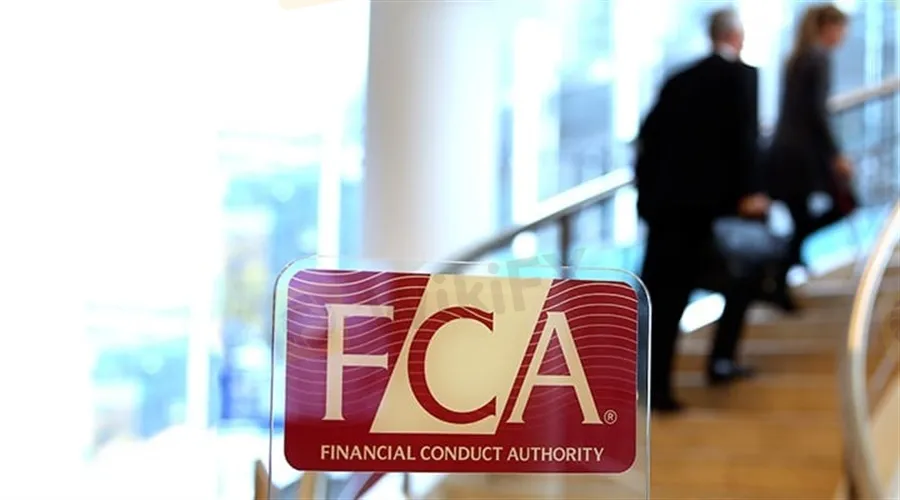简体中文
繁體中文
English
Pусский
日本語
ภาษาไทย
Tiếng Việt
Bahasa Indonesia
Español
हिन्दी
Filippiiniläinen
Français
Deutsch
Português
Türkçe
한국어
العربية
UK FCA Charges Four Individuals with £1.2M Binary Options Fraud
Abstract:The regulator charged a fifth person for tampering with its investigation. Binary options among retail investors has been banned in the UK since 2019.

The UK Financial Conduct Authority (FCA) has charged four individuals for their involvement in a binary options investment that defrauded investors of £1.2 million.
The four persons are Cameron Vickers, Raheel Mirza, Opeyemi Solaja (also called Opeyemi Olaja), and Reuben Akpojaro, the UK financial markets regulator announced on Tuesday.
The watchdog alleged that Vickers, Mirza, and Solaja between June 2016 and January 2020 ran a London-based investment company called Bespoke Markets.
However, rather than invest the funds they collected from investors in the binary options they advertised, the individuals allegedly used the money to fund their lifestyles.
FCA said it also charged Akojaro, who also worked at the investment company, with the same offenses.
Furthermore, the regulator said it charged Mirza alongside another individual, Taheer Sardar, for allegedly perverting the course of justice with regard to its investigation.
“The FCA alleges that between 31 July 2022 and 1 October 2022, the two men created a false document to influence the case. This was adjourned until 16 November 2022 for a Plea and Trial Preparation Heading,” FCA explained.
Binary Options Ban
In the Tuesday statement, the FCA emphasized that binary options trading among retail investors is prohibited in the United Kingdom due to the high risks involved.
Binary options are also forbidden in the European Union (EU), Canada, Australia and Israel.
“Binary options are a high-risk ‘all-or-nothing’ type of investment which have been banned for retail use since 2019. The investor will attempt to predict whether an event will happen or not. If they win, they will see a return, but if they‘re wrong, they’ll lose all their investment,” FCA explained.
The regulator explained that the scheme carried out by the four individuals constitutes a criminal offense under the UK Financial Services and Markets Act 2000 (FSMA), the Proceeds of Crime Act 2002, and the country's common law.
FCA explained that Section 19 of FSMA outlines that an individual cannot executive a regulated activity in the UK unless authorized or exempted by the FCA. The section also prescribes a maximum sentence of two-year imprisonment for contravention.
On the other hand, money laundering under the Proceeds of Crime Act 2002 attracts a fine and or imprisonment of up to 14 years upon conviction.
Additionally, the watchdog noted that conspiracy to defraud under the countrys common law carries a maximum sentence of up to 10 years of imprisonment once found guilty.

Disclaimer:
The views in this article only represent the author's personal views, and do not constitute investment advice on this platform. This platform does not guarantee the accuracy, completeness and timeliness of the information in the article, and will not be liable for any loss caused by the use of or reliance on the information in the article.
Read more

Billboard Warns of Crypto Scams Using Its Name – Stay Alert!
Billboard warns against fake crypto scams using its brand. Learn how to spot fraud and protect yourself from fake promotions.

The Impact of Interest Rate Decisions on the Forex Market
Interest rate changes determine currency attractiveness, influencing capital flows and exchange rate trends. Understanding this mechanism helps investors navigate the forex market effectively.

Rising WhatsApp Scams Highlight Need for Stronger User Protections
UK consumers lose £2,437 on average to WhatsApp scams. Revolut demands stricter verification and AI monitoring to combat rising fraud on Meta platforms.

How a Housewife Lost RM288,235 in a Facebook Investment Scam
A 47-year-old housewife in Malaysia recently fell victim to an online investment scam, losing a substantial sum of RM288,235 after engaging with a fraudulent scheme advertised on Facebook.
WikiFX Broker
Latest News
The Withdrawal Trap: How Scam Brokers Lure Victims into Paying More
FCA to Investors: Think Twice Before Trusting These Brokers
Trump\s tariffs: How could they affect the UK and your money
Trump gambles it all on global tariffs he\s wanted for decades
TradingView Brings Live Market Charts to Telegram Users with New Mini App
Trump tariffs: How will India navigate a world on the brink of a trade war?
Interactive Brokers Launches Forecast Contracts in Canada for Market Predictions
IG Group Acquires Freetrade for £160M to Expand UK Investment Market
U.S. March ISM Manufacturing PMI Released
Should You Beware of Forex Trading Gurus?
Currency Calculator







